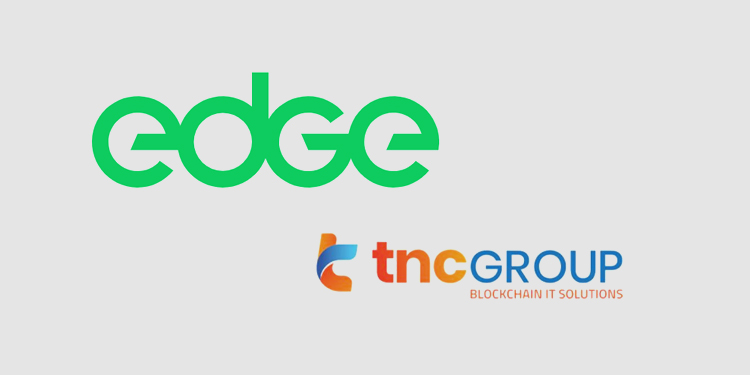Edge, a decentralized computing network powered by blockchain, has announced a new partnership with TNC IT Group, a provider of blockchain development and security services. TNC’s major activities include investing both its resources and guidance on blockchain companies, integrating blockchain technology, finding global standard developers, and more.
The partnership will see Edge working collaboratively with hundreds of crypto projects as part of an ecosystem dedicated to driving the industry forward. Edge will be providing infrastructure services to TNC and the other companies in the group. It will also be contributing to the development of new projects originated by TNC to help to accelerate the adoption of blockchain-based platforms.
Token
As part of the agreement, the current EDGE token will be merged into a new group coin, the TNC Group Token (TNC), which will be launching at the end of March. This change addresses the tokenomics of the Edge Network by ensuring liquidity and exchange coverage, both of which are critical to the growth of the Edge Network. There will be a token swap which will provide 11 TNC for every 1 EDGE held.
EDGE will be formally relaunched later in the year with updated tokenomics, better aligned to the requirements of the network. This will be achieved through the release of eDAG.
eDAG Launch
Further, as part of the partnership, TNC is committed to supporting the release of the eDAG – the blockchain solution at the heart of the Edge Network. The eDAG will bring smart contracts and instant, feeless transactions into the Edge Network, enabling per-minute payouts for the contribution of computational power.
As the Edge network aims to move from monthly payouts to daily payouts in the near future, and from there to hourly and eventually per minute payouts, it needs an internal network value transfer mechanism that is free, massively scalable and that provides instant settlement. The current structure of the EDGE token as ERC-20 is not suitable for the needs of the network.
Edge needs to maintain the provision of smart contracts as these are central to the mechanisms of the network: enabling the trustless use of spare computing resources in return for a consideration of network fees; enabling staking, and providing a traceable history of resource usage on a per-node basis. To this end, a DAG-based chain will be introduced within the network, this is called eDAG, or Enterprise DAG.
